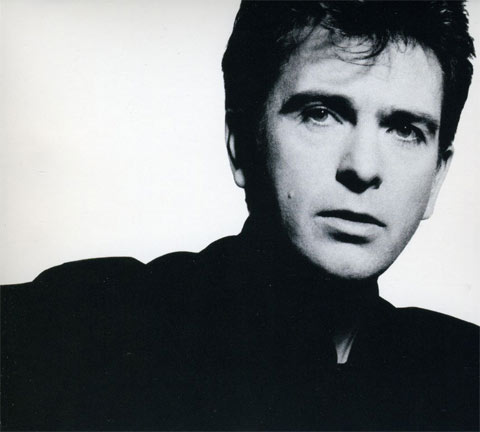
SLEDGEWORK The 25th anniversary of So finds Peter Gabriel performing it in its entirety on his
upcoming "Back To Front" tour. |
In the annals of rock/pop history, 1986 is often an underappreciated year. Many of the tropes we associate with "The '80s" had already come and gone, and the slow mainstreaming of underground trends was a thing of the future. Which might explain why a record like Peter Gabriel's So seems so utterly unattached to the time it was made or the period in which it exploded as a multiplatinum pop success. "I think the record sort of came together in a way that fitted the mood of the times," Gabriel explains from his country home in Wiltshire, UK, where he's preparing to perform So in its entirety on his upcoming "Back to Front" tour. "But then, I always think that being a pop star is . . . a really fun thing to do but a lousy place to live."
Perhaps. But Gabriel, realizing he had to live there, found a way to do some redecorating when he upturned the priorities of the role of the global mega music star in the late '80s. So's success was largely predicated on the hysterical reception of the groundbreaking videos for Stax-y singles like "Sledgehammer" and "Big Time," but it was also the culmination of Gabriel's transformation from a shining star of '70s progressive rock, fronting Genesis, into a singular voice for social justice and the then-burgeoning "world music" movement. The theatricality of Gabriel's video persona was nothing new: with Genesis in the '70s, Gabriel walked onstage in outrageous costumes, sporting fox heads and bat wings, singing fantastical sci-fi prog epics. But solo Gabriel embraced the MTV era with a gusto that eventually paid off handsomely. "I was very enamored of all things video," Gabriel explains, "but then again, So was also just a more playful album, in ways that lent themselves to the mood of the videos."
If the record contained levity, Gabriel was dead serious not just about his music, but in finding a way to make his success work for his other passions. His 1980 single "Biko," with its stark gated-drum impact, foregrounded Gabriel's dedication to social justice, and it corresponded with his co-creation of the international arts festival series WOMAD. With the success of So, Gabriel used his showbiz heft to help out several Amnesty International–associated tours, shows, and projects. He also aided in the creation of a number of nonprofits like WITNESS, a human-rights watchgroup, and the Global Elders, a group dedicated to finding peaceful conflict resolution, which is chaired by Desmond Tutu and counts Nelson Mandela and Kofi Annan among its members. "I've always been quite pig-headed in some ways," says Gabriel, "in wanting to follow the things that interest me, whether it was activism or world music or whatever. It led me to a lot of places I wanted to go but wasn't sure how to."